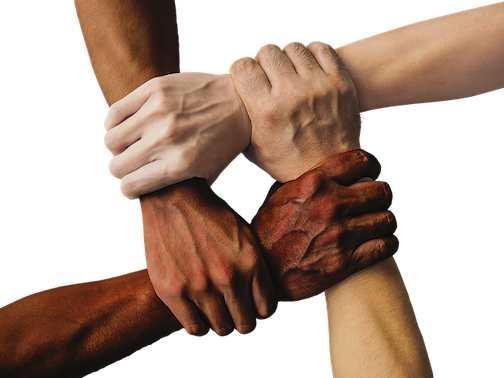Controlling Behavior as a Cry for Connection
By Dr. Margaret PaulSeptember 02, 2019
What would happen with yourself and your relationships if you recognized that controlling behavior is a cry for connection?
 How do you respond when you feel that your friend, family member, or partner is trying to control you? Do you counter by trying to control them - giving yourself up, resisting, getting angry, blaming or withdrawing?
How do you respond when you feel that your friend, family member, or partner is trying to control you? Do you counter by trying to control them - giving yourself up, resisting, getting angry, blaming or withdrawing?
How does the other person respond to your response? Does he or she respond with more controlling behavior - indifference, resistance, defending, anger, blame or compliance?
Do you end up feeling connected with each other?
Take a moment right now to tune inside and see what is really happening when you protect yourself with avoidant, controlling behavior.
- Are you feeling alone and lonely?
- Do you feel empty inside, desperate to feel some love within?
- Do you long to connect with your friend, family member or partner, but you become protected and controlling when fearing or experiencing disconnection with them due to their controlling behavior?
What if you saw your own controlling behavior and the controlling behavior of others as a cry for connection? Would this make it easier for you to have compassion for yourself and the others in your life?
We all yearn for connection with others, especially when we didn't get the connection we needed as babies and young children.
This is generally what infatuation is about: we feel connected with the other person and it takes away our loneliness. And the feeling of connection is deliciously wonderful! But if you have not done the inner work of learning to connect with yourself and your guidance, then you may become afraid of losing the connection with the person you are infatuated with. Then you might resort to your learned avoidant controlling behavior, either in response to your own fear, or in response to the other’s controlling behavior. Then, of course, you lose the connection and end up feeling lonely and alone. You might even conclude that you picked the wrong partner.
But what if you stayed connected with yourself and compassionately felt the deeper feelings of loneliness, heartache, heartbreak, and grief if your partner disconnects from you with their protective, avoidant, controlling behavior? What if you were connected with yourself enough so that you did not scare yourself with the notion of losing your partner, to the point of becoming protected and controlling in response to your own fears? What if you recognized how much we all love to feel connected with each other, and stayed connected with yourself, so that you could keep your heart open to your own feelings and the feelings of your partner?
What do you think would happen with the relationship?
In some relationships, you might quickly discover that your friend, family member, or partner is completely unwilling to feel his or her own painful feelings and learn to take responsibility for them, and that there is not much hope of sustaining connection. In other relationships, you would discover that the more open and loving you are, the more open and loving your partner, friend or family member is - that they want to connect as much as you do and are willing to learn what they need to do to support a connected relationship.
I encourage you to see your own and others’ controlling behavior as a cry for connection. And I encourage you to learn and practice the powerful Six Steps of Inner Bonding. The intent to learn with yourself and others is the most profound path to connection with yourself and with your partner, friends and family members.
Heal your relationship with Dr. Margaret’s 30-Day online relationship course: Wildly, Deeply, Joyously in Love.
 Send this article to a friend
Send this article to a friend  Print this article
Print this article  Bookmarked 0 time(s)
Bookmarked 0 time(s)
| Related Articles |
|---|
| What Really Creates Emotional Intimacy |
| Relationships and Emotional Connection |
| Control and Resistance - the Relationship Gremlins |
Comments
| Author | Comment | Date |
|---|---|---|
| Join the Inner Bonding Community to add your comment to articles and see the comments of others... | ||

Daily Inspiration
Today, notice what you do to avoid painful feelings. Do you stay in your head instead of in your body? Do you keep your breath shallow? Do you get angry, withdrawn, judgmental? Do you use food, alcohol, drugs, sex, spending, gambling, work, TV? Today, compassionately embrace and learn from your feelings rather than avoiding them, and see how you end up feeling.
By Dr. Margaret Paul

 Share with Del.icio.us
Share with Del.icio.us Share with Digg
Share with Digg






